
Review
The Running Man: entertainment instead of alarm bells
by Luca Fontana
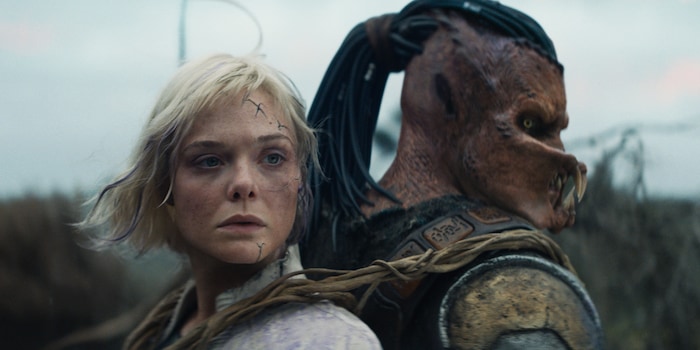
What if the most dangerous hunter in the universe were the weakest of his clan? Predator: Badlands flips the formula – delivering a monster tale about honour, code and change.
No worries – the following review contains no spoilers. Everything mentioned is already common knowledge or has been revealed in the trailers. «Predator: Badlands» opens in cinemas on 6 November.
Some film characters simply can’t be killed – not by bullets, not by time. The Predator is one of them – or more precisely, the Yautja, the species that once taught Arnold Schwarzenegger fear in a Central American jungle. Granted, back in 1987 Arnold did say, «If it bleeds, we can kill it.» Still, that one-liner sparked a mythology that nearly collapsed over decades of trashy reboots and crossover fantasies.
Enter Dan Trachtenberg. In 2022’s Prey and more recently Killer of Killers, he showed the franchise what happens when you again take seriously the monster born of the 1980s macho culture. He clearly grasps the Yautja in a way unseen since original director John McTiernan.
Namely, as hunters with a code.
With Predator: Badlands, Trachtenberg pushes that idea further. He doesn’t tell yet another run-of-the-mill story of humans fighting to survive a monster. He tells one where the monster must first prove itself to survive. It feels right. Fresh. Surprising, even.
Honestly, I didn’t think Hollywood could still surprise me. Too many old brands get squeezed dry until every drop of nostalgia has evaporated. But lo and behold! Predator: Badlands proves even a dead-and-buried franchise can taste new blood – if you let it. So much for the voices claiming Hollywood’s run out of ideas. They’re out there, rarely listened to.
It’s a good thing 20th Century Studios took a leap and gave Dan Trachtenberg – who not only directed but also co-wrote Badlands – a seat at the big table. While Prey was a return to the roots, Badlands is a bold step forward.
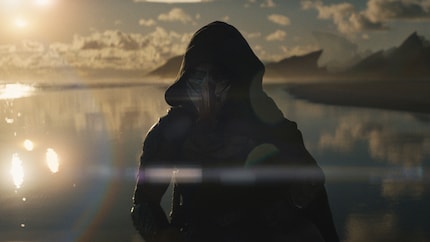
The film starts how you’d least expect: with a Yautja who doesn’t win. Dek is the weakest hunter of his clan, an outcast in a culture that measures honour by trophies. Weakness is shame, and shame must be eradicated, or more precisely, hunted and killed.
On the run, Dek seeks refuge on a planet even his own species fears that’s home to a creature considered invincible. For Dek the logic is simple: if he’s the weakest, his only way to survive is to defeat the strongest – and, in doing so, claim the greatest trophy of all.
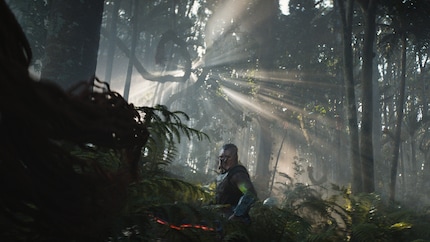
Just like that, the roles are reversed. The hunter becomes the prey, the monster the underdog. Trachtenberg reverses the formula without breaking it. He doesn’t make the Yautja human. He just reveals the human in it. Its vulnerability. Its rage. Its fear of being irrelevant.
Above all, Trachtenberg draws us deep into this body of steel and flesh and shows how every movement becomes an act of survival. The planet where Dek crash-lands is no bleak wasteland but a flourishing inferno. Among moss-covered trees lurk predators with teeth that glint like shards of glass. Branches snatch at anything that moves. Bushes spit poison. Worms explode. Even the grass is a weapon – so sharp it slices flesh on contact.
And Dek? He looks like a foreign object moving through an ecosystem that rejects him – a hunter stranded in a realm where everything hunts.
Brilliant!
The moment a human-looking companion appears beside Dek, I can hear the outraged voices of long-time fans: «A Predator making friends? Sacrilege! A betrayal of the legacy!» But this is a misunderstanding. Dan Trachtenberg betrays nothing. On the contrary. Right at the start, the film spells out who the Yautja are:
«A Yautja is no one’s friend. A Yautja is everyone’s predator.»
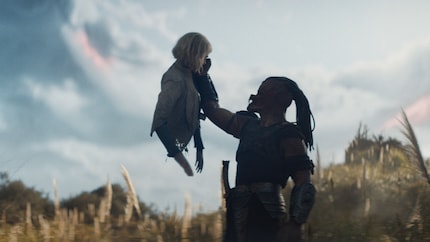
The Yautja aren’t comrades; they’re hunters. That line is entwined into the storyline. But hunters do use tools. Some are crude, like blades, spears, nets, others more refined, like cloaking fields, thermal scanners, and laser cannons with uncanny accuracy. All serve one purpose – to perfect the kill.
Thia – the human-looking companion in question, a synthetic survivor of the Weyland-Yutani Corporation – is simply the next logical extension of that. She’s a tool, not a living being. As an android – or a «synthetic» – she’s nothing more than a machine, something used for the hunt and, in this case, even survival. At least that’s how Dek rationalises it to stay true to his own Yautja code.
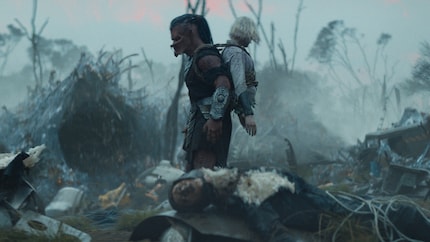
Dek remains what he is: a killer. And not a stupid one at that. He’s young, overeager, slight by Yautja standards and too bold at times, but he’s always learning, always analysing, watching and adapting. That’s the fresh direction Badlands dares to take – the film shows a Yautja who grows stronger not through brutality but through understanding that strength without adaptation is worthless.
It doesn’t bother me that it’s the synthetic Thia who guides him on this path with surprising warmth and humour for a Predator film. I actually like this evolution. It unfolds slowly, almost imperceptibly – for instance, when Dek learns from his early mistakes and later turns that knowledge against his enemies.
To me, that’s not a weakening of the legend but a long-needed evolution.
One more thing – even though Predator: Badlands was released in the US with a PG-13 rating – causing some concern (linked article in German) – there’s nothing tame about it. Dan Trachtenberg stages violence with a painful physical directness. This is nothing new – we’ve seen it in Prey and Killer of Killers.
When Dek rips through his opponents, blood splatters, limbs fly, bodies shatter. Which is why the German rating board FSK has rated the movie 16 and up (link in German).
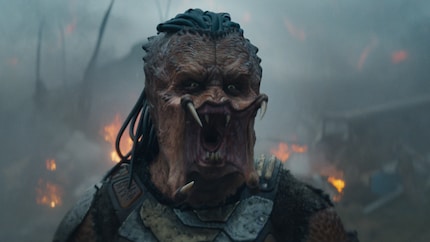
At the same time, Badlands maintains a surprisingly elegant pace. No scene drags, no fight overstays its welcome. Trachtenberg has a perfect feel for when tension needs to brew and when it should explode. One moment, a blinding red beam tears through the underwood; the next is haunted by silence that clings to the film like a second skin.
Yep – Trachtenberg is technically skilled too.
With Predator: Badlands, Dan Trachtenberg proves you don’t need a radical break to revive a franchise – just the courage to try something new. Where others saw only a monster, Trachtenberg delves inside the creature, into its culture, its code of ethics, its doubt.
Badlands is no milestone of cinema history, but it’s a damn well-made action film. It’s rough, gripping and surprisingly elegant; a film that knows when to be loud, when to stay quiet and when to pop you a wee wink. Badlands bears a clear signature – that of a director who knows exactly what he’s doing.
That, I think, is Trachtenberg’s biggest success. He doesn’t inflate the myth – he just reminds us why it worked in the first place. Predator: Badlands is no prestige project but honest, well-crafted genre cinema. And that alone is enough to make me believe again that even an old hunter can still be full of surprises.
I write about technology as if it were cinema, and about films as if they were real life. Between bits and blockbusters, I’m after stories that move people, not just generate clicks. And yes – sometimes I listen to film scores louder than I probably should.
Which films, shows, books, games or board games are genuinely great? Recommendations from our personal experience.
Show all